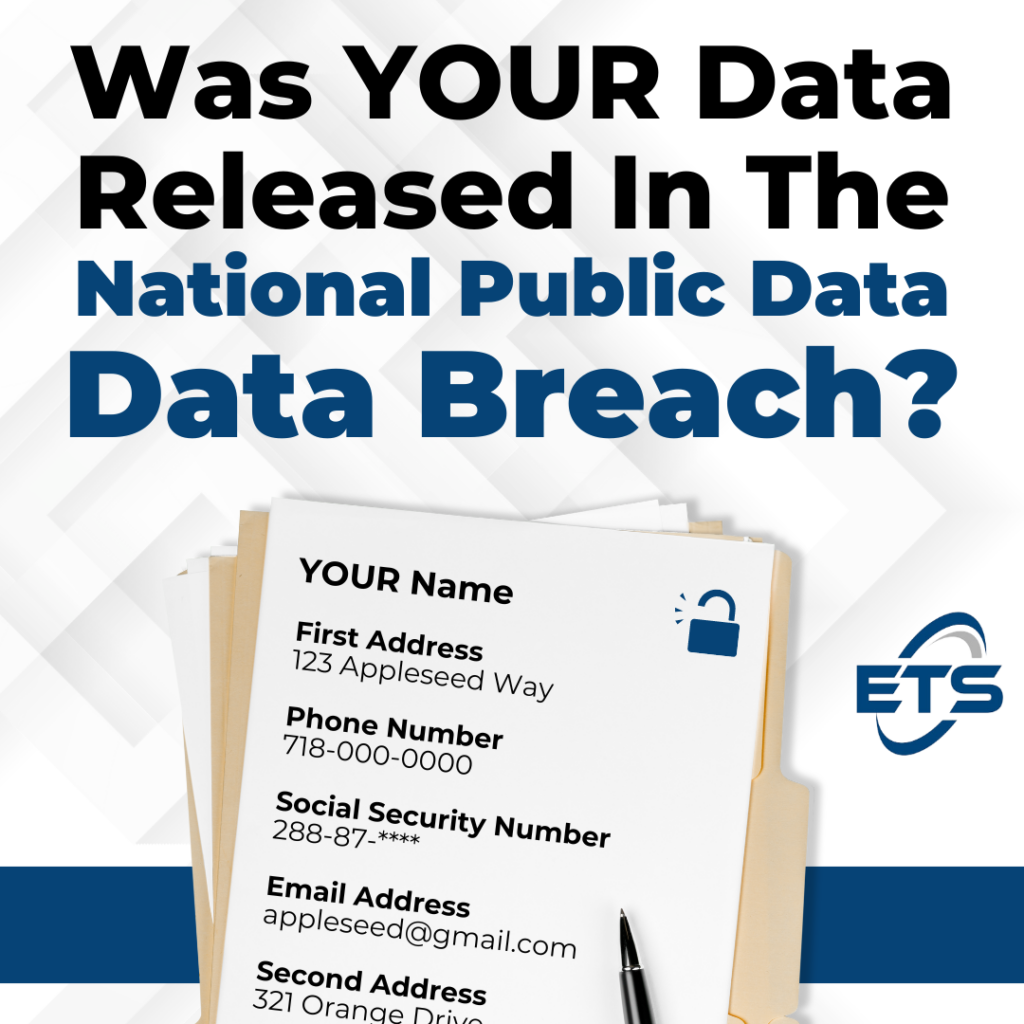Was Your Data Leaked In The 2024 National Public Data Breach?
In September 2024, National Public Data confirmed a massive data breach that has exposed the personal information of millions of individuals. This breach includes sensitive details like names, e-mail addresses, phone numbers, mailing addresses, and even Social Security numbers. Up to 2.9 billion people could be affected by this breach, making it one of the largest data compromises in history. Here’s what you need to know and how you can protect yourself.
What Led To The National Public Data Breach?
National Public Data, a major consumer data broker, was targeted in a hack that began in December 2023. Specializing in criminal records, background checks, and public data services for HR departments, investigators, and government agencies, National Public Data became the victim of a breach that resulted in personal information being stolen by a hacker named “USDoD.” The stolen data appeared online in April, and by August, the entire dataset was freely available on several breach forums.
The information exposed includes names, phone numbers, e-mails, mailing addresses, Social Security numbers, previous addresses, and alternate names. While the official data breach notice lists 1.3 million exposed records, some lawsuits suggest that the number may be as high as 2.9 billion.
Why Is This Data Breach So Dangerous?
Even though much of the information, aside from Social Security numbers, may already be publicly available, the danger lies in the fact that all of this data is now consolidated in one place. This makes it much easier for cybercriminals to use the information for identity theft, credit fraud, and bypassing security authentication. In particular, Social Security numbers and personal details like childhood street names could be used to answer security questions and gain access to private accounts.
There are also growing concerns about a rise in phishing and smishing (phishing via SMS) attacks. The data provides scammers with enough information to craft convincing, personalized fraud attempts.
Could You Be Affected Even If You Haven’t Heard of National Public Data?
Yes. National Public Data collects information from various organizations, businesses, landlords, and public records. Even if you haven’t directly interacted with them, it’s possible your data was included if any of these entities used their services to look up your information.
What Should You Do To Protect Yourself?
Step 1: Check If Your Data Was Exposed Use tools like npd.pentester.com to see if your personal information was part of the breach. If it was, take action immediately.
Step 2: Request a copy of your credit report and then freeze your credit. One of the best ways to protect your identity is to freeze your credit and set up alerts. This prevents criminals from opening up new lines of credit in your name. To do this, contact all three major credit bureaus – Equifax, TransUnion and Experian – and request a freeze.
The process is free and should take you less than 10 minutes per site to complete. If there are others in your house over the age of 18, it’s a good idea to freeze their credit too. Anyone with a Social Security number is vulnerable following a breach of this size.
Once you have a copy of your free credit report, review it for anything that you didn’t authorize. Don’t forget to set up alerts and review your credit regularly.
Step 3: Be On Guard For Phishing Scams With the information available, scammers may try to contact you through phone calls, text messages, e-mails, or even social media. Be cautious of unexpected messages or requests for personal information, and don’t click on any suspicious links.
Secure Your Business Data – Don’t Be The Next Victim
Data breaches are not just devastating for individuals; they also impact businesses. As a business owner, it’s your responsibility to safeguard your customer and employee data. If you’re concerned about the security of your network or want to know if your information has been compromised, we offer a FREE Security Risk Assessment to evaluate vulnerabilities and provide a roadmap for securing your systems. To book your assessment, call us at (702) 879-7111 or click below to schedule a consultation.

